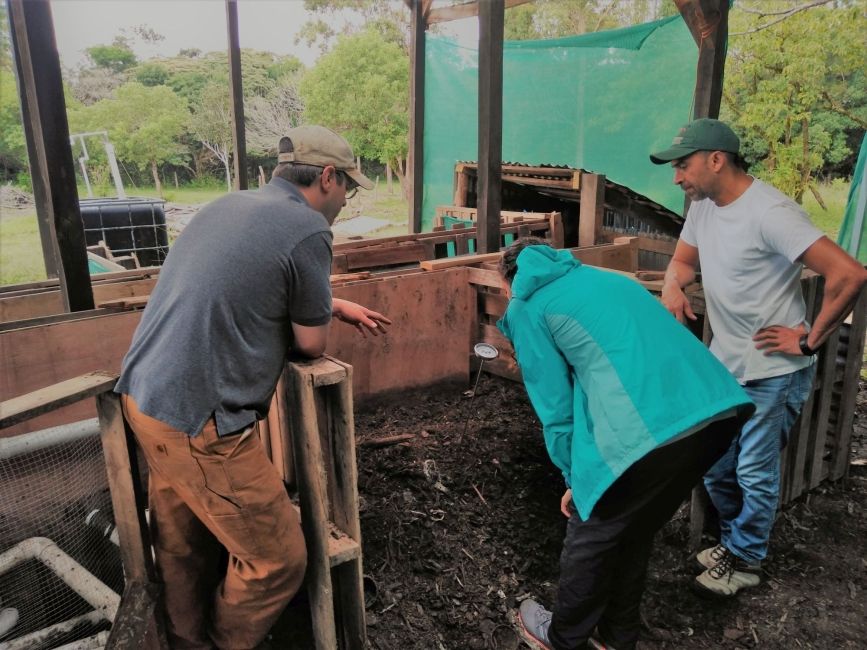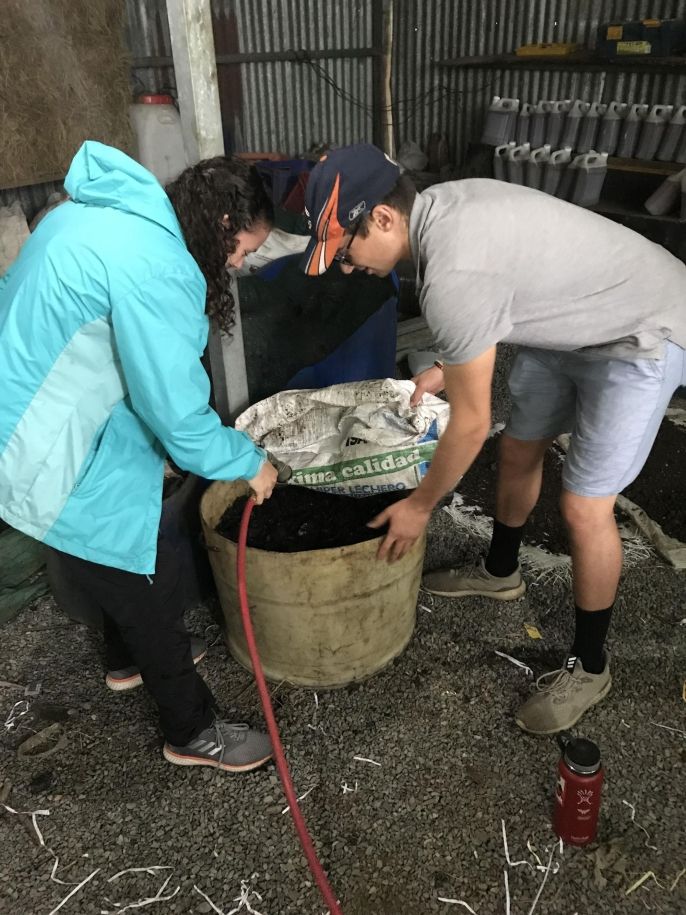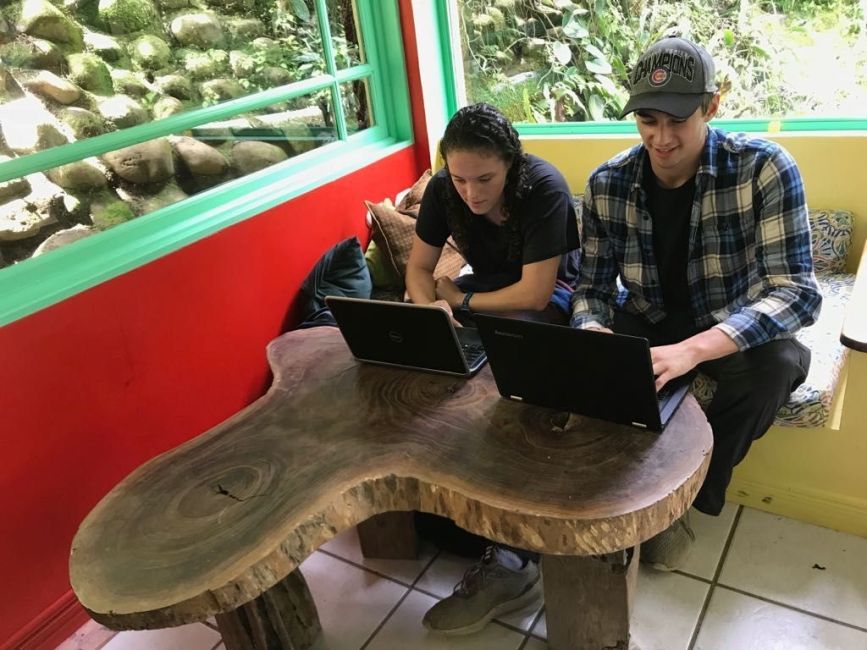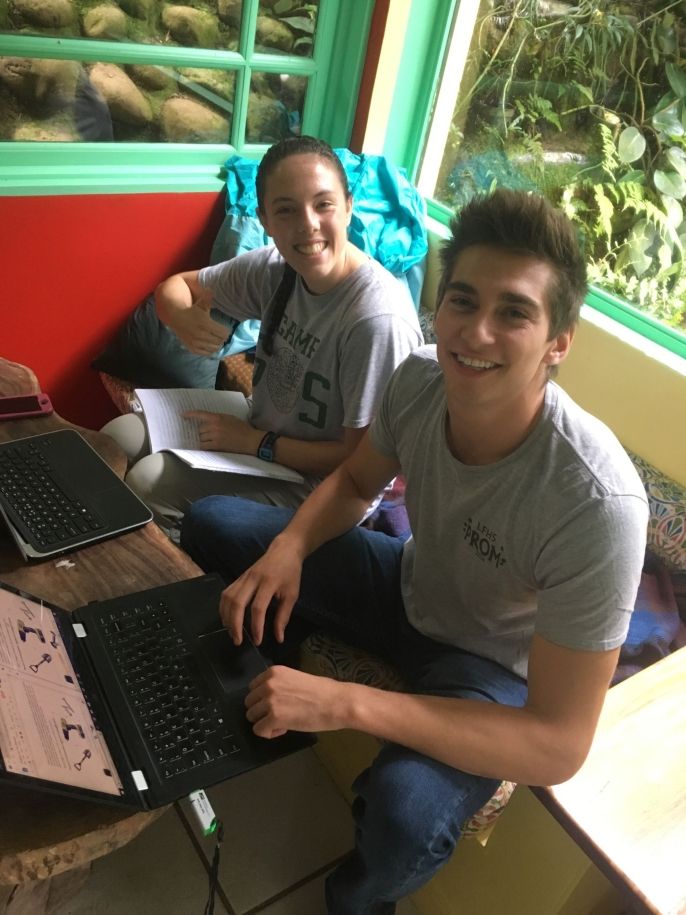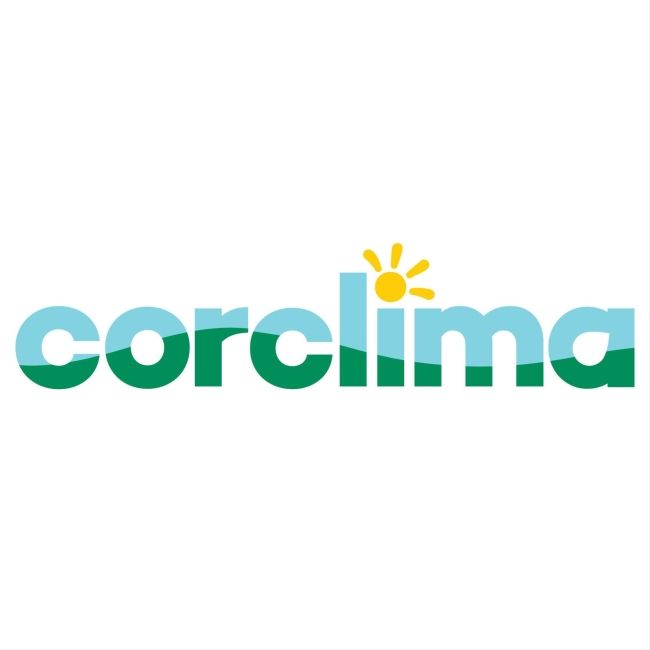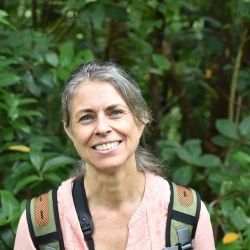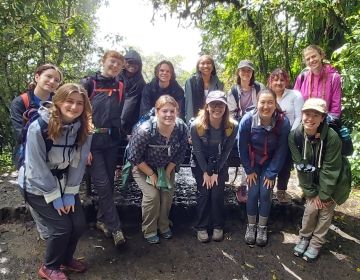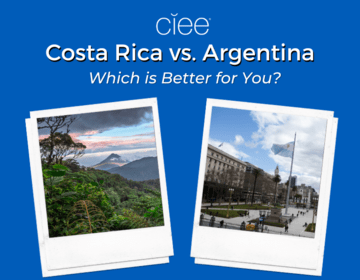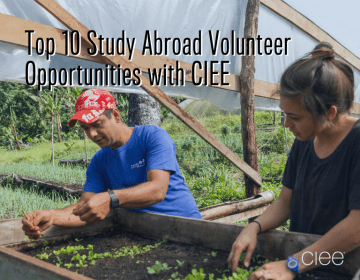Internship with CORCLIMA
Written by Corey de Vou (University of Colorado, Boulder), Internship in Sustainability and the Environment.
Making an impact through reduction. This is the ideology that motivated me to pursue an internship with Orlando Calvo, the overseer of the project I have been working on. CORCLIMA, the Monteverde Commission for Resilience to Climate Change, is the main organization that we are working with. CORCLIMA’s main objectives are, reducing emissions through various efforts that resonate towards citizens within the community, thereby inspiring a direction towards building climate change resiliency. My internship complements this mission. It was geared in developing a composting manual, as well as material for social media, aimed at assisting households in managing their organic waste. Almost half of the waste coming from the Monteverde region is organic. This ends up in the landfills, slowly decomposes anaerobically, and as a result releases methane, a very dangerous greenhouse gas.
Composting is something I have always been aware of but never fully understood. Before this internship, I didn’t see the connection between sustainability and composting. My motivation really took off during the beginning stages of this project when I started understanding the consequences of having organic waste within landfills. It takes up space, releases methane, and costs the citizens in Monteverde more money because trash fees are accorded on a per ton load. I couldn’t help but think about how easily organic waste can be converted into something useful when implemented into a composting system, especially when there are units fit for households, be that small, medium or large. Picking apart this sustainability challenge resonates with me because of its feasibility. Everyone produces organic waste. The result is the same: no matter the environment, it will decompose and release emissions. However, our simple actions towards managing these materials dictate either a small or large impact. That is why this project has inspired me; because solving these issues is achievable; it’s like a puzzle and it fascinates me.
Creating a manual involves heavy amounts of research. I had to pick apart the key aspects of compost through investigating material both online and in person. Several organizations in the area such as LIFE Monteverde and The Monteverde Institute gave me and my colleagues an inside look at their composting systems. Such opportunities helped me to better visualize the information I was reviewing on the internet. In addition to my analytical skills, paving a path towards a successful manual strengthened my sense of communication. Katy VanDusen, the coordinator of CORCLIMA, Orlando, my colleague Hailey Campbell and I had to meet several times throughout this internship so that we could monitor our progress and outlooks with the work we have done.
Upon completing this internship, looking at the information that was put in amazes me. I created several posts formatted for social media that highlighted members of the community engaged in composting, a glossary that defined important concepts discussed in the manual, a table explaining what you should and shouldn’t include in the featured composting systems and wrote three sections on non-traditional composting methods: Takakura, Bokashi, and Vermicompost. Thanks to the strong organization that my colleague Hailey and I carried with this project, we were able to create a product that can make a difference within many communities.
Related Posts
Happy Earth Day: Today and Every Day
Happy Earth Day! Every April 22, this global event comes around to remind us how precious our planet is, what sustainable efforts we can make to protect Earth, and that... keep reading
Costa Rica vs. Argentina: Which is Better for Study Abroad?
Imagine yourself sipping mate in a bustling Buenos Aires café or lounging peacefully in a hammock overlooking Costa Rica's lush rainforests. These contrasting scenes represent just a glimpse of the... keep reading
Top 10 Study Abroad Volunteer Opportunities with CIEE
Have you ever wondered if you could volunteer abroad? Perhaps you're looking into study abroad programs that provide international volunteer opportunities. If you’re itching to study abroad and truly make... keep reading
